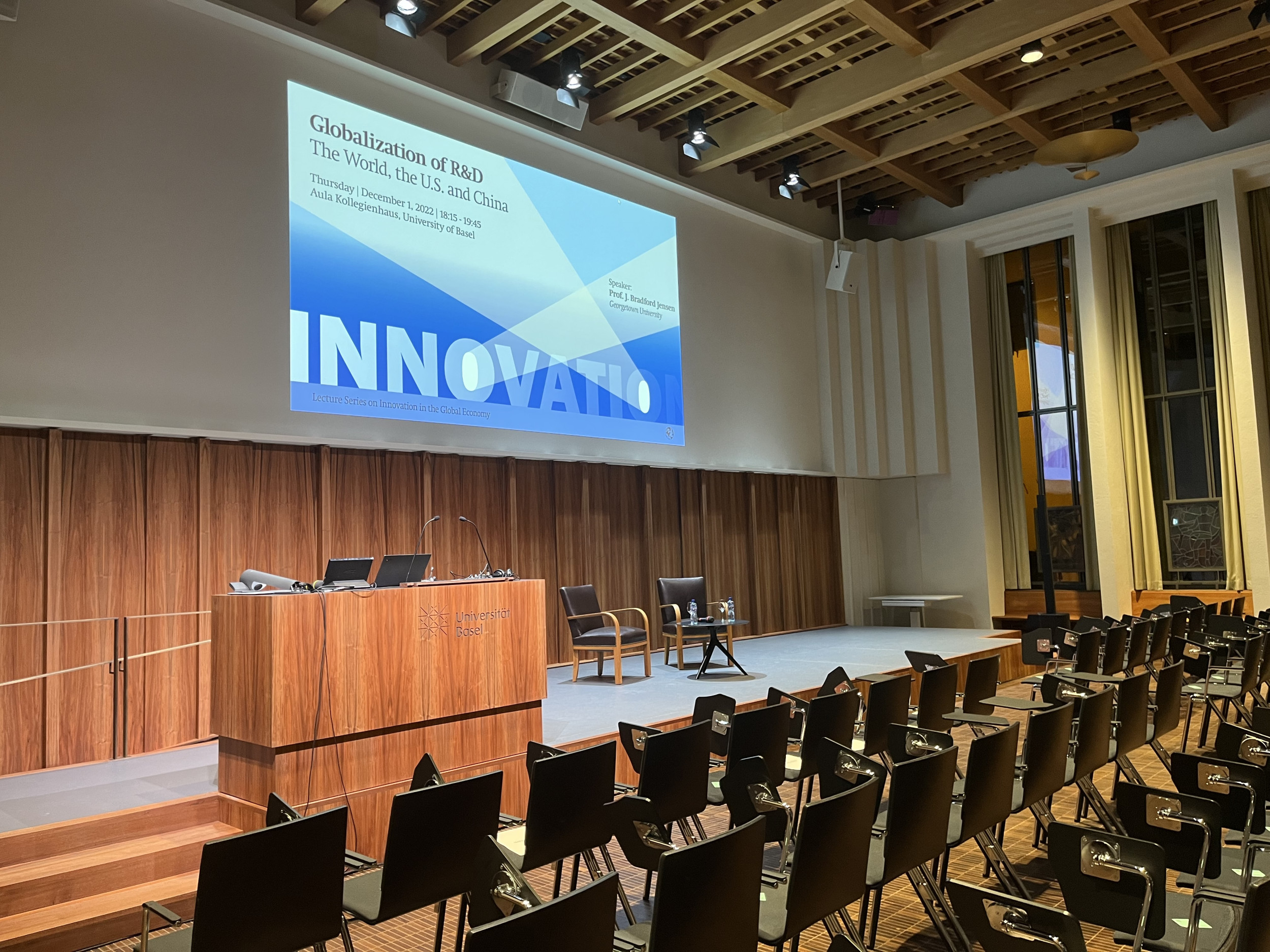The talk is part of the "Lecture Series on Innovation in the Global Economy". The series provides a platform for renowned researchers in Business and Economics to present their research results and thoughts on “Innovation in the Global Economy” to a broad audience. The events tackle the challenges of globalization and new technologies for society, policy makers and companies.
First lecture: Globalization of R&D: The World, the U.S. and China
Prof. J. Bradford Jensen / Speaker
Click here to read more about Prof. J. Bradford Jensen
Professor at the McDonough School of Business, Georgetown University, Washington DC.
Senior Fellow at the Peterson Institute for International Economics and Research Associate of the National Bureau of Economic Research (NBER).
Professor Jensen pioneered the use of plant-level micro data to investigate the impact of international trade and investment on the U.S. economy. He published a book on “Global Trade in Services” (2011) and has made important scientific contributions in areas such as “Offshoring”, “Intrafirm Trade” and “Multinational Companies”. Jensen’s work on trade in services played a role in the U.S. Administration’s negotiations for the Trade in Services Agreement (TiSA).
Professor Jensen teaches the Master Course “Global Strategy for Multinational Companies” in the Zaeslin+Maag Summer School of the Faculty of Business and Economics of the University of Basel.
Over the past 20 years, U.S. multinationals have significantly increased their research and development (R&D) activities outside of the U.S., with most of the growth in offshore R&D occurring outside traditional European R&D locations. These trends are contemporaneous with an increasing importance of software and information technology hardware (and software and hardware engineers) in the R&D process.
At the same time, multinationals expand in the “innovation systems” in developing economies like India and China.
U.S. multinationals that pursue highly integrated global innovation networks appear to produce “better” innovations. In the event Prof. Bradford described these developments and discussed with Prof. Weder the implications of growing geopolitical competition for global innovation, strategy and policymaking.



